Questionable permits and concessions, as Livno stone is illegally mined for a Chinese company based in Croatia
Povezani članci
- I am Generation Equality: Hana Curak, feminist blogger and activist
- “It’s not about money. It’s about political will.”
- Construction of the Banja Luka-Prijedor Highway: Contract drafted in favour of Chinese investors, violates state aid rules
- Vlado Đajić’s brother in a million-KM crime?
- How Sakib Pleh used the unresolved status of an institution of state importance for personal enrichment
- HC ISTOCNO SARAJEVO: CHEMICAL WASTE DIRECTLY IN THE SEWER?!

Photo: Hercegovina.info
There are cases where Chinese companies have entered quarries by obtaining concessions for the exploitation of certain stones through Bosnian companies, where a Chinese company is subsequently registered as the majority owner of that company, or even instances of completely illegal mining of stone from Bosnian quarries, such as in the Vaganj quarry near Livno, according to our source.
More than half of the total value of architectural stone, including marble and granite, exported from Bosnia and Herzegovina in the last five years has gone to China. These findings are based on data from the Indirect Taxation Authority of Bosnia and Herzegovina, which shows that during this period, stone worth approximately 7 million KM was exported to China out of the total export value of this product, estimated at around 12 million KM.

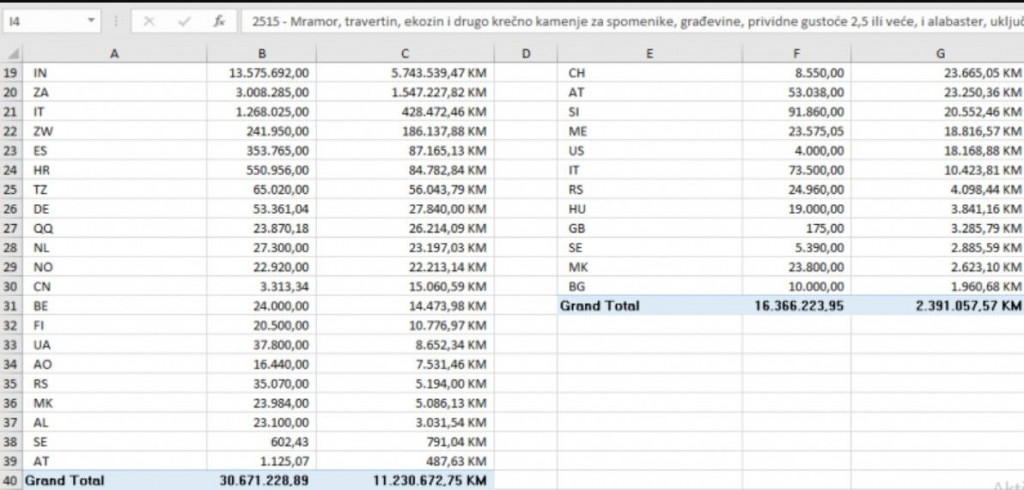
The situation involves tens of thousands of tons of stone, whose export price is significantly lower than the price of imported stone in Bosnia and Herzegovina. The main reason why we export domestic stone cheaply and import foreign stone at a high cost is because, according to our sources, a significant number of quarries oriented towards exports are under the control of Chinese companies.
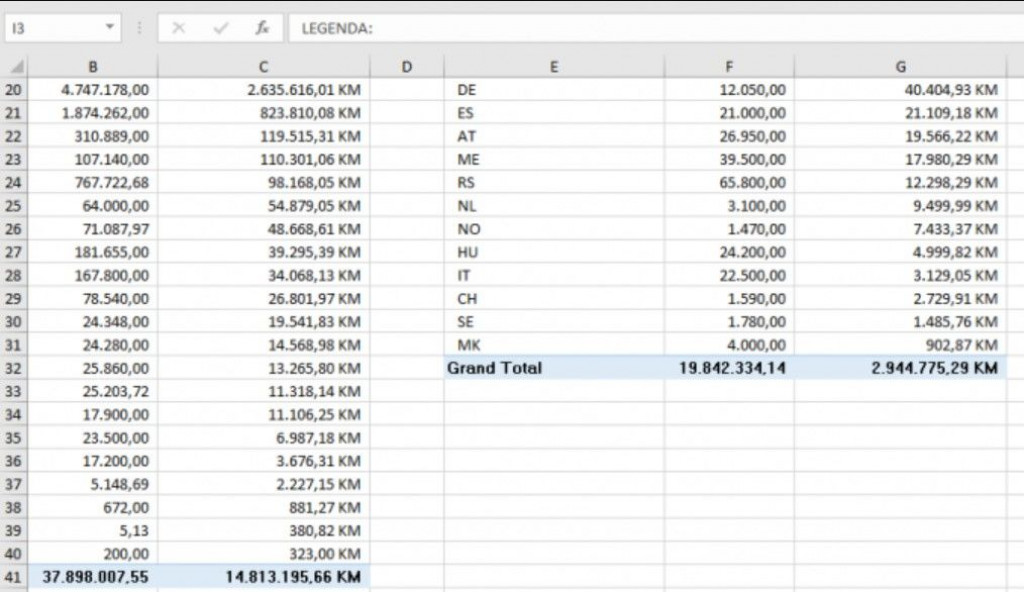
Questionable permits and concessions
“There are quarries where Chinese companies have entered by obtaining concessions for the exploitation of certain stones through Bosnian companies, and then a Chinese company has been subsequently registered as the majority owner of that company. There are cases of completely illegal mining of stone from Bosnian quarries, as was the case in the Vaganj quarry near Livno, where the official exploration in the quarry was started by the company “Silit natural stone”, owned by Ilija Čečura, who has close ties to the HDZ.
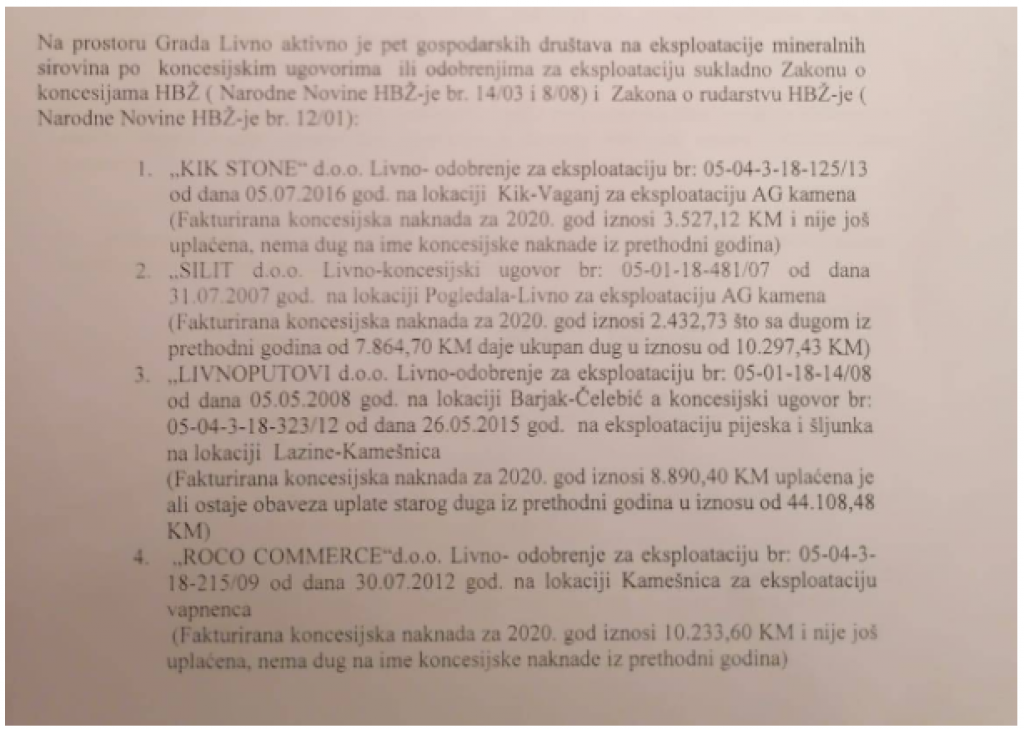
Čečura later opened another company called “Kik stone” through family members. According to our information, they worked with the company “Ana kamen projekt” from Croatia, whose majority owners are Chinese, and which operated illegally in Bosnia and Herzegovina. It is a well-known fact that Chinese workers were mining stone in that quarry and that huge quantities of stone were extracted from it, which were then transported to Croatia and subsequently to China through the company “Ana kamen projekt”, said our anonymous source.
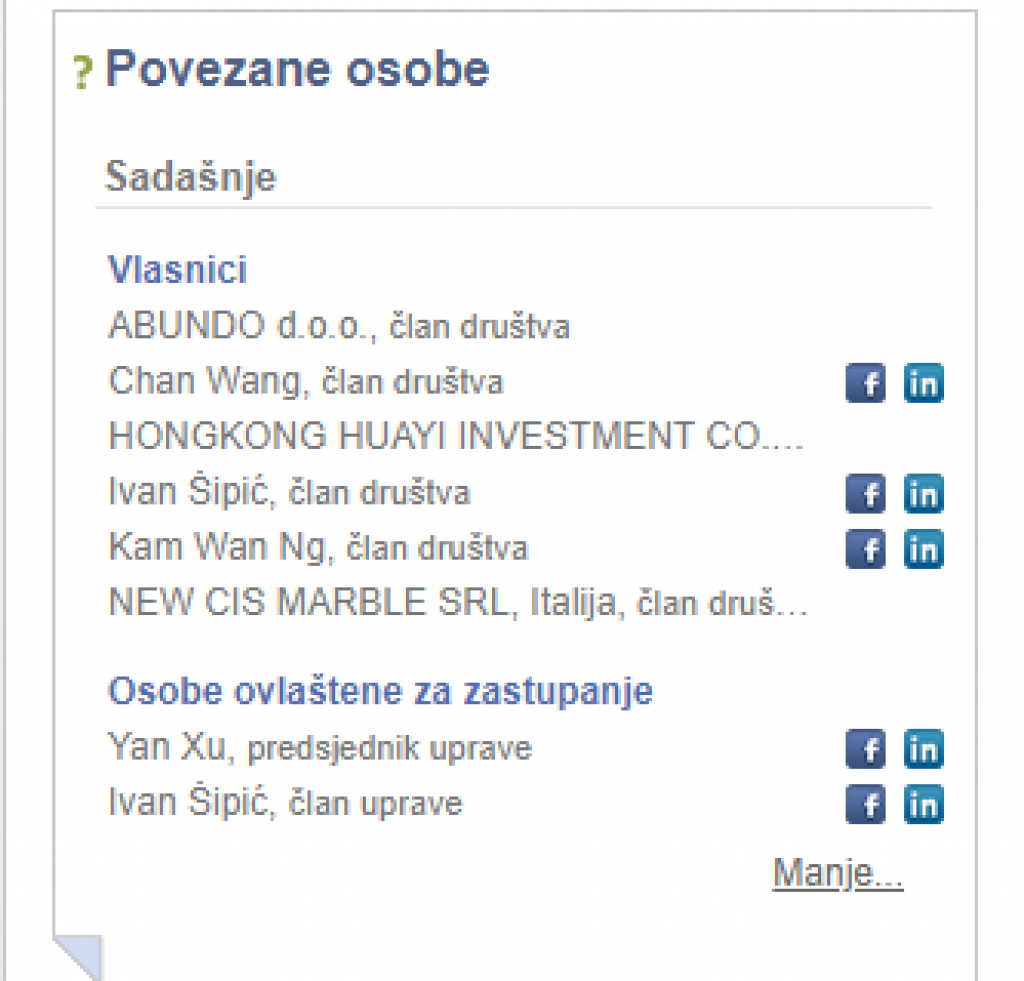
Our source further emphasizes that it is questionable whether the Livno-based company “Kik stone” fulfilled the requirements to obtain the necessary permits for mining stone at the Vaganj site, but that the exploitation of valuable stone was made possible thanks to Mato Šiško, the assistant to the Minister of Economy for Industry, Energy, and Mining in the Government of Herzegovina-Neretva Canton, as claimed by our source.
“Mato Šiško is the main person responsible for issuing these concessions and permits, and if he ‘blessed’ it, then the Chinese could have dug up the whole of Livno and no one would dare to say anything. We’ve heard that even Mato Šiško’s son was involved in this business with the Chinese and worked for the company ‘Ana kamen projekt’ from Croatia. If it is known that Ilija Čečura is very close to HDZ, then it is clear how this business was conducted in favour of the Chinese company from Croatia. This quarry where Chinese workers were working was operating at full capacity for a while, and the stone was being mined and exported without any control.
The Chinese benefited the most from it because, despite not having permits to mine in Livno, they obtained our stone without any problems,” says our source with whom we recently visited the Vaganj site, but we were unable to access the area that leads to the quarry as it is fenced off as private and access is prohibited for the unemployed.
We have sent a written inquiry to Mato Šiško, the assistant to the Minister of Economy in the Government of the Herzegovina-Neretva Canton, regarding all the claims made by our source, but we have not yet received a response.
The link between the Chinese in Croatia and the Italian company in Bosnia and Herzegovina
We are also awaiting responses to our written inquiries from the companies “Silit” and “Ana kamen projekt” regarding their comments on the allegations regarding their involvement in stone mining at the Vaganj site near Livno. If we receive answers to our questions, we will publish them subsequently.
In the meantime, we have obtained information that the Italian company “New Cis Marble” is registered as one of the founders of Čečura’s company “Kik stone”, as well as the company “Ana kamen projekt” with majority Chinese capital in Croatia, which supports the claims of our sources about the connections between the Chinese and the Livno quarry and Čečura.
By reviewing the registry of business entities in both Bosnia and Herzegovina and Croatia, we have confirmed this information.
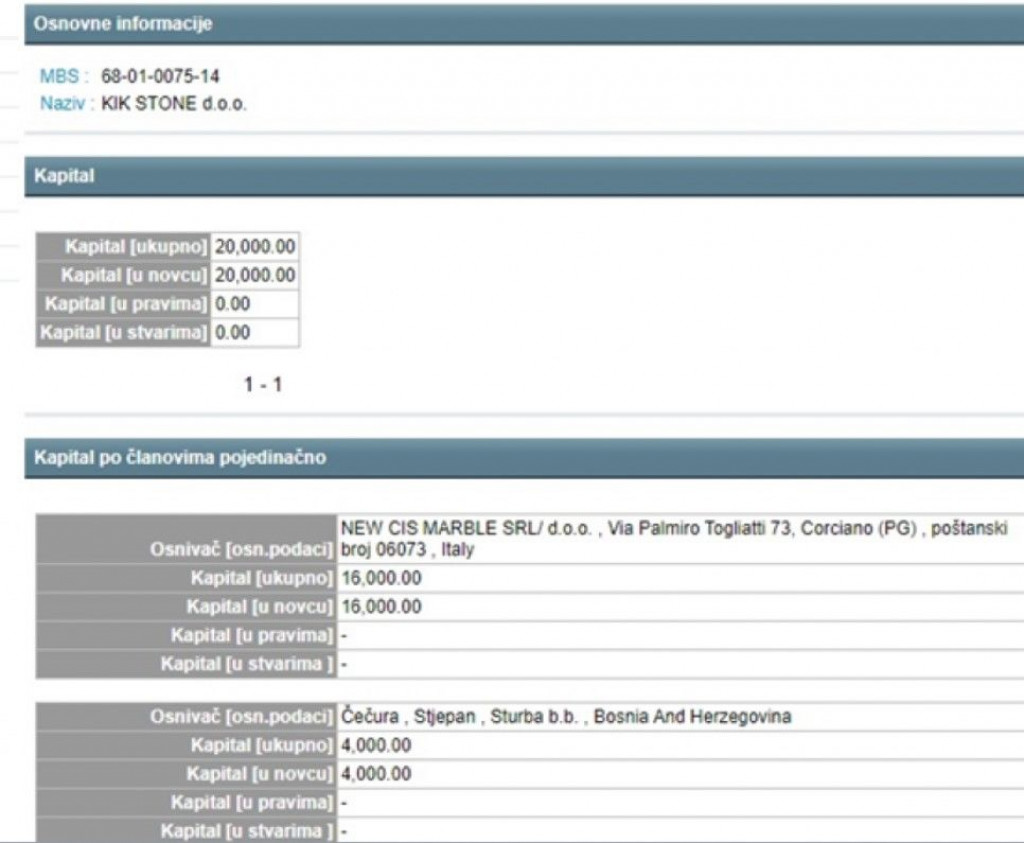
Furthermore, in one of his earlier media appearances, Stjepan Čečura, who is currently listed as a founder of the company “Kik stone”, made statements on behalf of the company “Silit”. For example, in 2017, at the economic fair in Mostar, Čečura stated that the “company had established contact with Chinese entrepreneurs at the fair” and announced cooperation. However, this cooperation never became official.
According to data obtained from UNO BiH, China is the largest importer of our stone among the dozen countries to which Bosnia and Herzegovina exports stone. However, despite the desirable goal of maximizing export rates for every country, according to our sources, “things are not clean” in this case, as they claim that no one is monitoring the ways and methods in which the Chinese exploit our stone, and it is particularly questionable why the export price of the stone is significantly lower than the price of the stone we import.
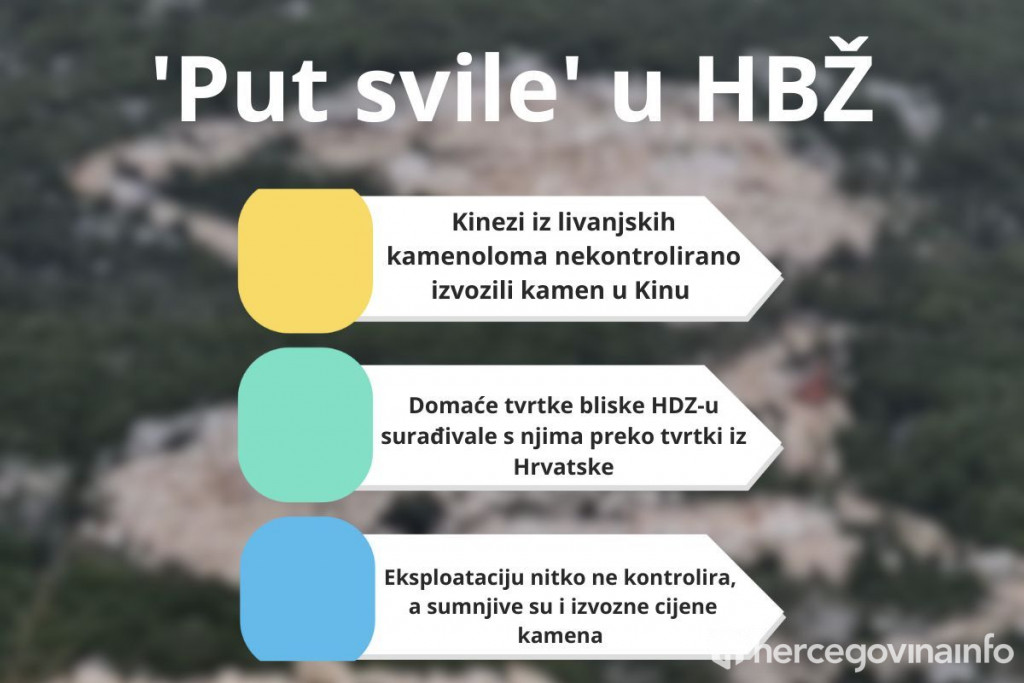


 ENG
ENG





























